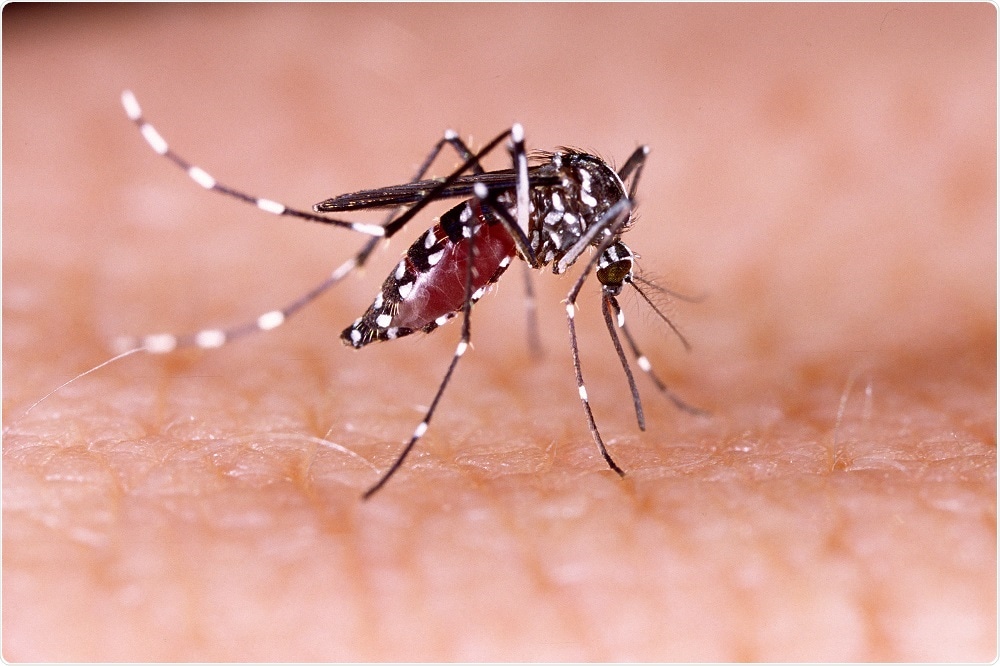
Zika Virus: What Does the Future Hold?
 Thought LeadersProfessor Julia ClarkeProfessor of NeuroscienceThe Federal University of Rio de Janeiro
Thought LeadersProfessor Julia ClarkeProfessor of NeuroscienceThe Federal University of Rio de JaneiroAn interview with Professor Julia Clarke, PhD, conducted by Kate Anderton, BSc
What percentage of the Brazilian population was infected by Zika virus between 2015-2016? How many of these were pregnant women?
Because Zika virus infection is largely asymptomatic, and even when symptoms develop they are mild, it is very hard to know the exact number of patients infected and how many were pregnant. Moreover, detrimental consequences to the brain of fetuses were only described when women got pregnant, several months after contracting the Zika infection, so it is impossible to precisely estimate the true extent of population exposed.
 Image Credit: Tacio Philip Sansonovski / Shutterstock
Image Credit: Tacio Philip Sansonovski / ShutterstockWhat are the immediate neurological complications caused by Zika virus infection in newborns?
Microcephaly in newborns is the most drastic consequence of Zika virus infection in the uterus, but a large number of other malformations, including enlarged brain ventricles, calcifications, among others, were also associated with infection by the virus.
However, the majority of babies exposed to the virus in uterus are born with normal head sizes. Babies exposed to Zika virus during the 2015-2016 epidemic are now around 3 years old now so it is impossible to predict how they will develop.
Our study suggests than even babies born with normal head perimeter and no detectable malformations at birth are at risk of developing late-stage complications of the infection as they grow.
Please describe the investigations you carried out into the long-term effects of Zika virus.
We established a mouse model of neonatal Zika virus infection and we followed them throughout their lives in order to identify and hopefully find a way to prevent any long term detrimental consequence of the virus. We found that mice exposed to Zika developed frequent seizures during childhood and adolescence.
Although these seizures resolved as animals grew into adulthood, animals remained more sensitive to drug-induced seizures in adulthood. They also presented motor deficits throughout their lives, as well as memory impairment.
Animals exposed to the virus also showed impaired sociability during adulthood, which is a hallmark of diseases such as autism and schizophrenia. Surprisingly, viral replication was still active in adult brains, long after the acute phase of infection.
We then treated animals acutely after infection with a TNF-α neutralizing antibody, and found that it was enough to suppress the childhood seizures and restore their sensitivity to drug-induced seizures in adulthood to normal levels.
However, memory and motor impairment were not prevented by this drug, so it did not offer complete reversal of all symptoms associated to infection. Although more studies are needed in other animal species and in humans, TNF-α neutralizing antibodies represent an interesting pharmacological approach to Zika infection because the one we tested is already FDA-approved and its use during pregnancy is allowed.
What conclusions can be made from the research?
The main conclusion is that focusing only on microcephaly as a consequence of Zika infection during development might lead to an underestimation of the true magnitude of the Zika virus epidemics. Our results suggest that all infants exposed to Zika might develop neurological consequences at different stages of life.
Our findings also suggest that blocking TNF-alpha, an important molecule for the inflammatory response, might have beneficial effects. However, more studies are needed in other animal models and in humans to strengthen this finding.
Are the findings applicable to adults infected with Zika?
There have been cases of prolonged viral replication, seizures and encephalitis in adults exposed to the virus, which means that neurological complications can still occur in adult patients following infection. The late consequences of viral infection in the adult brain remain unknown.
Do you think that TNF-a inhibitors should be offered to all children infected with Zika virus?
TNF-α inhibitors are not routinely administered to babies and could also have side effects such as making them more susceptible to opportunistic infections. Therefore, more studies are necessary to test the overall benefit of such treatment in Zika exposed babies and during pregnancy. However, it does attest that anti-inflammatory therapy might be of use to diminish the detrimental long-term effects of the infection.
What are the next steps for your research?
We are now focusing on the precise mechanisms by which Zika virus causes the myriad of consequences we identified in neonatal mice, as well as investigating the consequences of infection in the adult brain. Moreover, we will test whether other anti-inflammatory strategies might also be beneficial.
Where can readers find more information?
Readers are more than welcome to read the original paper that was recently published in Science Translational Medicine, as well as visiting our research group website.
About Professor Julia Clarke
 Dr. Julia Clarke is a Professor of Neuroscience at the Federal University of Rio de Janeiro, Brazil. She graduated and obtained her PhD degree at the Federal University of Rio Grande do Sul, also in Brazil.
Dr. Julia Clarke is a Professor of Neuroscience at the Federal University of Rio de Janeiro, Brazil. She graduated and obtained her PhD degree at the Federal University of Rio Grande do Sul, also in Brazil.Professor Clarke has several publications on the mechanisms of memory formation and Alzheimer`s disease. Her group currently studies the mechanisms of developmental programing by early-life infections and other detrimental environmental stimuli during the perinatal period.





















.png)









No hay comentarios:
Publicar un comentario